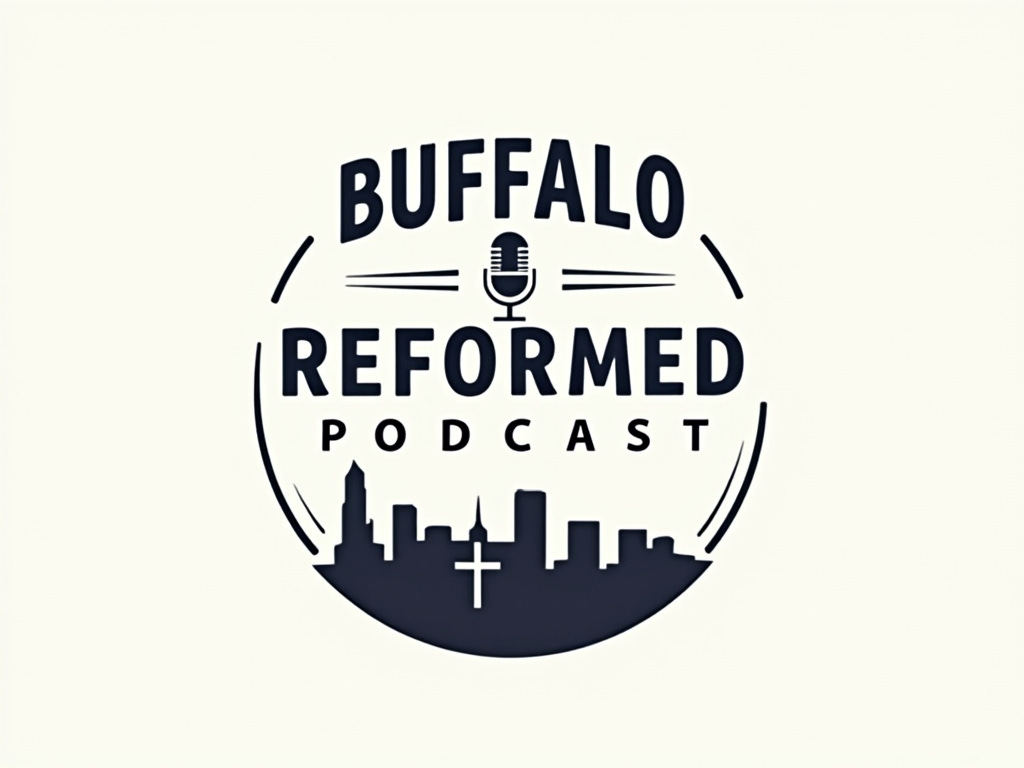Episode Music
The intro music for this episode is from the third symphony of Mendelssohn, called the “Scottish” symphony. It is the second movement. Mendelssohn is important to music history on the basis of his incredible music alone; however, two things about him are particularly noteworthy. First, Mendelssohn was born into a Jewish family (his parents were Abraham and Lea Salomon Mendelssohn), but his family was baptized as Lutherans in 1822. It seems to me that he was a true Christian. Secondly, he is credited with the rediscovery of the music of J. S. Bach, which highlights Mendelssohn’s approach to music: progress by building upon the work of the past. Something we can take note of as Christians (Felix Mendelssohn, Encyclopedia Brittanica).
Episode Guest
Pastor Rich Lusk is the pastor of Trinity Presbyterian Church in Birmingham, AL. More of Pastor Lusk’s material is available at their church website, The Pastor’s Corner. He was a contributor to the book, “The Federal Vision” which he mentions in the episode. Trinity Presbyterian Church is a member congregation in the Communion of Reformed Evangelical Churches (CREC), Athanasius presbytery.
Episode Chapters
00:00:00 Introduction
00:01:07 Pastor Lusk’s background
00:14:28 Historical Theology
00:26:58 Historical Influences
00:37:59 Regeneration
00:41:58 Initiation of Regeneration: Baptism or the Holy Spirit?
00:52:02 Distinction from the Lutheran view
00:55:13 Differences between Theopolis and Moscow
01:02:19 Oatmeal stout versus amber ale
Historical Theology
In the episode, Rich discusses historical theology and some of the influences that have led to the modern theological landscape. Historical theology is the study of how doctrine developed. When we read the Westminster Standards we are reading a historical document. This means that we cannot read our definitions of words and concepts into the document. For example, in the Westminster Confession of Faith Chapter XXI, paragraph 3 we read the following:
“Prayer with thanksgiving, being one special part of religious worship, is by God required of all men; and that it may be accepted, it is to be made in the name of the Son, by the help of his Spirit, according to his will, with understanding, reverence, humility, fervency, faith, love, and perseverance; and, if vocal, in a known tongue.”
When we read, “…in a known tongue” we usually think of the modern phenomenon of speaking in tongues. But the authors of the Westminster Confession of Faith were writing in the 1600’s, well before what we call “speaking in tongues” was prominent among some Christians. What the authors had in mind was the Latin Mass. They were making a polemical statement, based upon Paul’s teaching in 1 Corinthians 14, against the idea of a worship service in an ecclesiastical language.
Federal Vision
Federal Vision has been a controversial issue since a pastors' conference at Auburn Avenue Presbyterian Church in Monroe, Louisiana, in January 2002. The conference was addressed at many issues, however, at the risk of being ultra-simplistic, I will say that it boils down to the objectivity of the covenant. What does it mean to be a visible Christian? Since that conference, there have been statements made about the issue from:
The OPC: “Report of the Committee to Study the Doctrine of Justification” (2006)
The PCA: “Report of Ad Interim Study Committee on Federal Vision, New Perspective, and Auburn Avenue Theology” (2007)
The URCNA: “Report of the Synodical Study Committee on the Federal Vision and Justification” (2010)
And there have been counterstatements from many of the men involved. Most notably:
Doug Wilson “The OPC Report on the Federal Vision” (2006)
Doug Wilson, “Federal Vision No Mas” (2017)
The following videos have been helpful to me in sorting through the issues:
Baptismal Regeneration
By baptismal regeneration we do NOT mean that by baptism we merit salvation. Nor do we mean that by baptism, faith is created in the heart of an unbeliever. We would affirm that in the case of an unbeliever, the Spirit is already working in their heart to produce faith (making them a believer) which is then instrumental in that person’s receiving the promises that are “…not only offered, but really exhibited and conferred by the Holy Ghost…” in baptism (Westminster Confession of Faith, Chapter XVIII, paragraph 6).
This is related to the federal vision controversy because baptism is our outward entrance into a covenantal relationship with God. If you think about the covenant as objective and meaningful, then the sacraments then become objective and meaningful. Pastor Lusk explores this with us in the episode.
“Thus, we can say that faith is the instrument of justification on our end, while baptism is the instrument on God’s side. God offers Christ and applies Christ to us through the instrument of baptism. We receive Christ as he is offered in the sacrament with the outstretched and open hand of faith. Baptism is not a good work we do to earn justification; it is a gift of grace through which God grants justification to faith. I would not claim that this sort of formulation clears up all the difficulties, but hopefully it points towards the kinds of solutions we need to be striving for.” (Faith, Baptism, and Justification by Rich Lusk)















Share this post